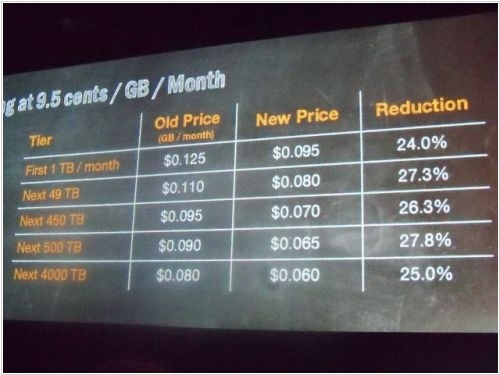Google and Amazon reduce cloud storage prices. Launch new cloud services
November 29, 2012 | Author: Michael Stromann

Competition - is good for customers. On Monday, Google reduced prices for its Google Cloud Storage by over 20%, and today, in response, Amazon has reduced prices for its S3 storage by 25%. Obviously, in the near future, Microsoft will also reduce prices for Windows Azure, to bring them to the competitive level - about $0.09/month per GB. The same story occured in March when Amazon lowered prices, and then Microsoft and Google aligned their pricing with Amazon. Because on the cloud platforms market the price is no longer a competitive advantage, but your pricing is higher than the competition - is't a big disadvantage. Some experts already doubt that Amazon and the contenders are earning something on selling gigabytes and gigahertzs. Like in case with the mobile market, the main task of cloud vendors - is to hook up large companies and SaaS-providers to their platforms, even if they should sell computing resources at a loss.
All the talks about open cloud platforms, open cloud standards and free migration between clouds - most likely will remain just talks. OpenStack is trying to build the communism in the Cloud, but with its communist-like business organization, it will hardly succeed. Meanwhile, Amazon, Google, Microsoft are build cloud platforms with their own standards, with unique features, and can afford to reduce prices for computer resources. They can afford because customers will remain and pay for additional features. Migrating to another platform will be very difficult.
In addition to new pricing, Google and Amazon introduced the new cloud services. Google launched the clone of Amazon's Glacier - Durable Reduced Availability Storage (cheap storage for very large amounts of data with slow data access). And Amazon played its muscles. It's new service Redshift allow to host databases the size of which is measured in petabytes. It's difficult to say about the demand for such a service, but it should definitely make a positive impact on Amazon's reputation. If they can play with petabyte-databases, than your little project will work on Amazon without a hitch.
See also: Top 10 Public Cloud Platforms


